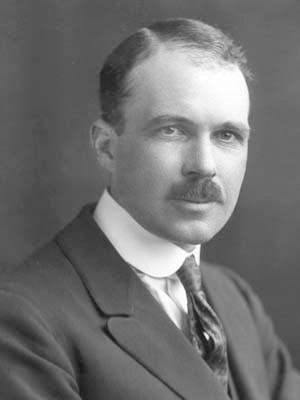
3 minute read
Is there a need for other Orders?
While supporting the Lodge bar and musing over my beverage options, my reverie was interrupted by two young Provincial Officers studiously studying diaries. One had four meetings the next week, the other five. Over the weeks following, their respective diaries again remained obstinately full. Their acceptance of each other’s kindly Lodge invitations must regrettably await the following month. I sipped my Gin and Tonic in silent admiration. Their lives were overflowing with Freemasonry. Clearly, they had employers who tolerated their absence, owned properties with palatial drawer space, knew kindly and generous bank managers, enjoyed Falstaffian digestion, and were blessed with wives of unparalleled patience and generosity, given their enforced nightly isolation; though possibly they both knew divorce lawyers at the ‘top of their game’.
Most Freemasons are able to choose from a wealth of Orders ‘beyond the Craft’, worked in chapels, chapters, colleges, conclaves, councils, courts, lodges, preceptories, or tabernacles within a multitude of Masonic locations. Whilst the two subjects of my ‘silent admiration’ were certainly remarkably busy, and appeared happy one question arose in my mind. Did they really get more out of their Masonry than the man who had joined just one Craft Lodge and Chapter, but attended all events it had to offer with loyalty and enthusiasm? Does quantity trump quality within Speculative Freemasonry?
Advertisement
The 108 Orders and Degrees known in England are engulfed by the many hundreds that have originated in the United States, in France, in Germany and not least in Scotland. Members confirm that each Order tells an often-beautiful story drawn from the pages of history and reflecting on the moral lessons of its theme or personalities. Taken in the round these stories present a loose chronological order of events centred on the pages of the Old Testament and with many relating to the building and rebuilding of Solomon’s Temple. Other themes contemplate early Christian culture and a few are drawn towards a wider and more esoteric global wisdom. If there is just one ‘great Masonic Secret’ out there does each of these orders provide, as in a moral jigsaw, one interlocking piece with all creating the whole? Sadly, with stories flowing from different authors, different cultures and different nations, any connection between the orders becomes purely accidental. Our 108 Masonic orders and degrees do not and perhaps could never be expected to inter-relate.
So, after the ‘Craft’ and ‘Royal arch’, then why join anymore? If we are seeking a far-flung social club offering great warmth, good fellowship, an amiable dinner after being told a colourful story within a structured moral setting then the more Lodges and orders and degrees we join the more we can achieve an ever-expanding range of friendships and interests. This is an aspect in which many elderly widowers find welcome solace. Some might consider there is a valuable social dimension. For many men, frustrated or working well below their potential in their day job, the broad Masonic structure offers rank and responsibility, colourful regalia, splendid titles and, most importantly, respect from others all within a sound moral environment. Possibly the more orders one joins so the prospects of actually achieving one’s level of personal contentment become all the greater?
If, however our aim has been to seek that great moral secret or truth offered by our Masonic Founders then do we really need to look any further than the basic Craft Degrees and the Royal Arch? In them we are instructed how to live in harmony with each other, in harmony with our own nature, and in harmony with our chosen ‘Supreme Being’. If we have been able to achieve all three of these within one lifetime, is there really anything else to seek or say? Has our solitary Mason within his one Craft Lodge, or chapter really any need to look further? Reflecting upon the matter, is a diverse Masonic ‘ career’ an end-initself or a merely the means-to-an-end, that of achieving a morally purposeful, rounded and contented life? Is it the width and range of our Masonic experience that matters, or is it the depth to which one is able to draw out the lessons of each degree and so apply them to one’s own life? Might the time spent exploring those ‘Additional Orders, possibly be better invested outside Freemasonry, offering ‘Brotherly Love’, and the fruits of our rich Masonic heritage to benefit the nearby social community beyond our Lodge buildings? Fortunately, has not Speculative Freemasonry equipped us to draw our own conclusions?
This was an fascinating paper issued by UGLE’ s Solomon programme last year.










